Korean Film Museum Permanent Exhibition
Section 1
The Birth of Movies
We examine the time when the Lumiere brothers in France, Edison in the United States, the Skladanowsky brothers in
Germany, etc. invented and screened movies before the birth of Korean movies and the period when movies were born
in each country.
Section 2
Motion Pictures Arrive in Joseon: The Beginning of a Unique Experience
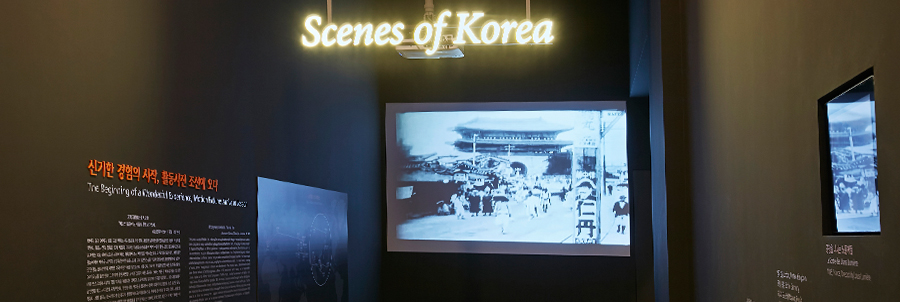
Here is a description of the route through which motion pictures first flowed into Joseon with the American traveler
Burton Holmes, who showed a movie he had shot to King Gojong, which was then shown to the public. These images
from the early 1890s show what the society was like and how people lived during that time.
Section 3
100 Years of Korean Movies
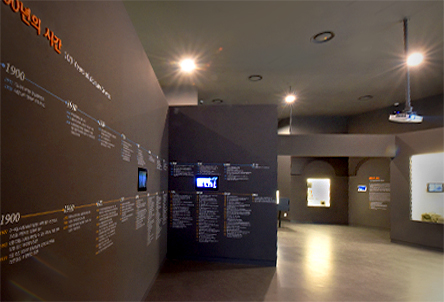
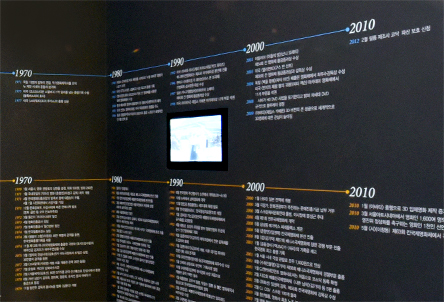
We can see the flow of the history of Korean movies in a chronological table ranging from the time when it was born to
recent times.
Section 4
Modern Times, Colonization, Joseon’s Movies
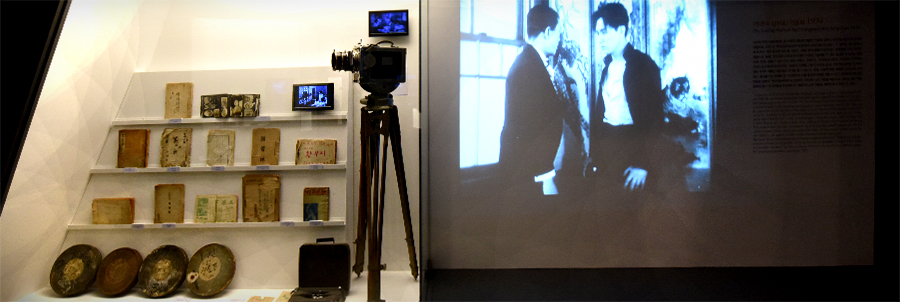
This is a space where we can examine the emergence of the first Joseon movie, the activities of film professionals, and
the Joseon movie system during Japanese colonialism from the early 1900s to Korea’s pre-liberation in 1945. Also, we
can see image materials and still photographs of the works produced at the time.
Section 5
Korean Liberation and the Korean War
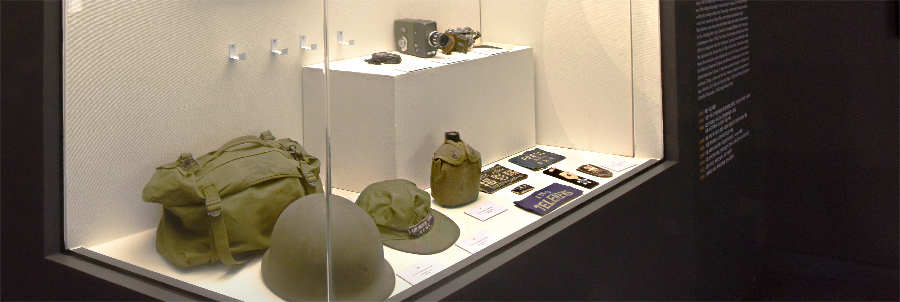
In this space, we can examine the activities and works of film professionals with a will to continue Korean movies who
overcame the ruined movie environment and system while going through colonialism by Japanese imperialists and the
Korean War.
Section 6
Fascination and Chaos
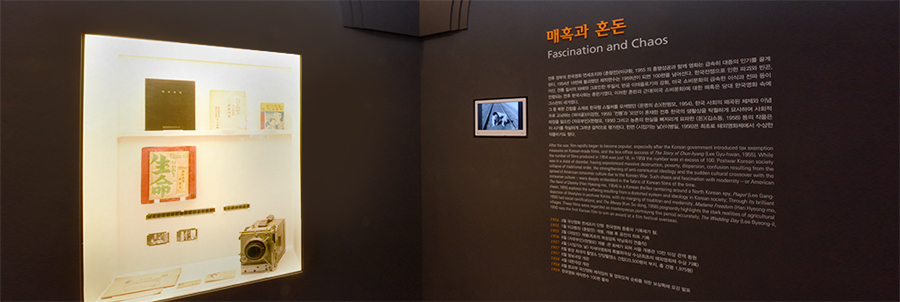
We can see the trend of Korean movies which reflected the society in 1950s when it experienced a period of confusion
due to destruction and poverty caused by the Korean War, disorder and strengthening of anti-communism ideology, and the rapid spread of American consumer culture.
Section 7
Renaissance of Korean Movies
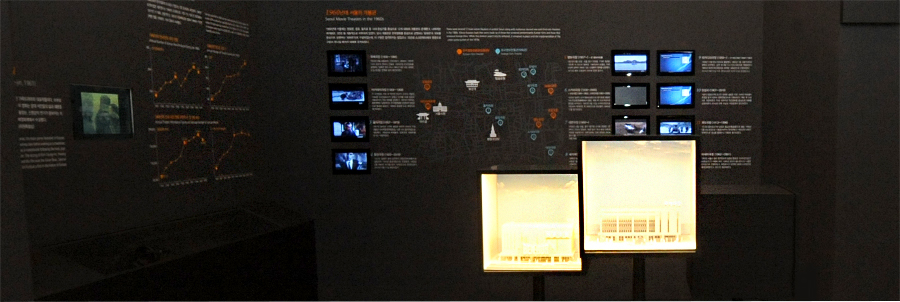
The 1960s was the golden age of Korean movies. We can see films produced at that time and information about first-run theatres in Seoul, the number of films produced, and number of viewers.
Section 8
Period of Youth Culture
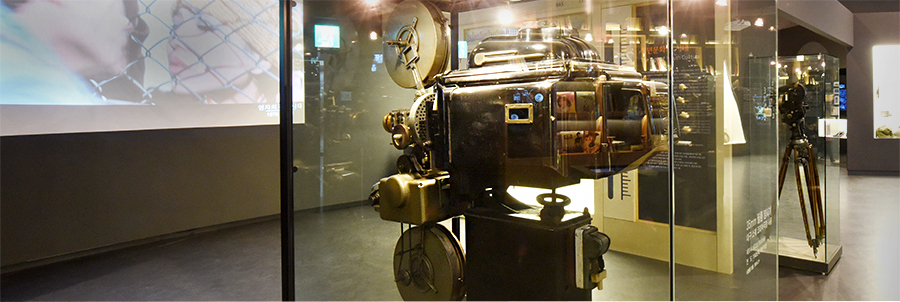
Korean cinema faced a dull period in the 1970s. We can examine the emergence of new directors who wanted to
overcome the period and the continuous activities of older directors through the works and collection representing
youth culture.
Section 9
The Winds of Change
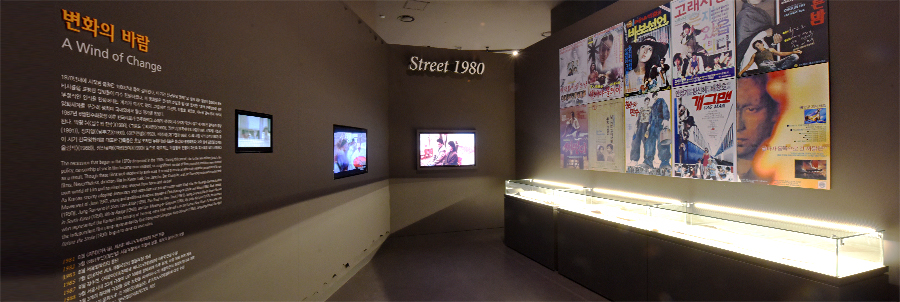
We can see the film trends in the 1980s, when a recession was deepening, and various film activities to overcome the
period along with the social aspects during that time.
Section 10
Explosion of Image Culture
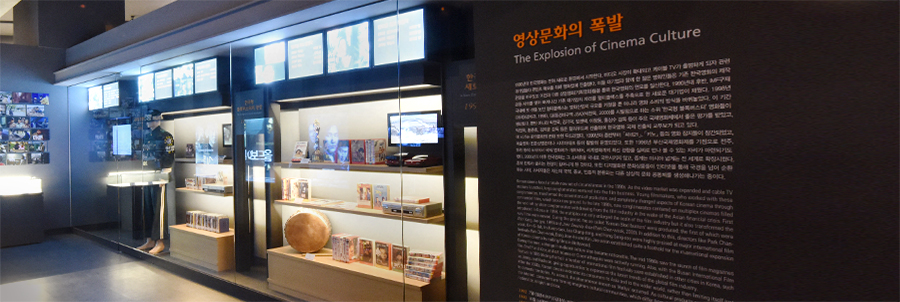
In the 1990s, the film industry developed along with a new environment that included the expansion of the home video market and launch of cable TV. Multiplex theatres were built, blockbuster films were produced, and large companies
participated in the film market.
Section 11
Archive
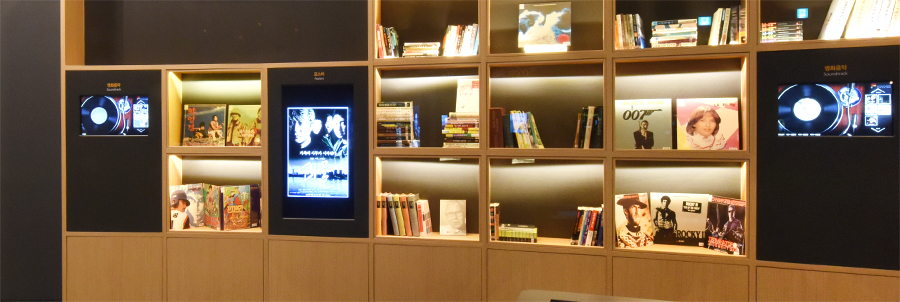
The archive includes posters and film music as well as films. Here we can search for and view major movies, and find
information on directors and actors/actresses by year in a media table. We can also appreciate posters and film music
directly.
Section 12
One Hundred Korean Films
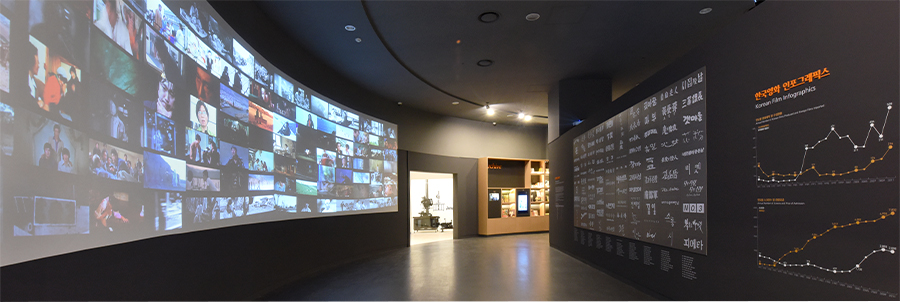
Among the feature films that were released between the early days of Koreans movie and 2012 and whose film or
contents remain, one hundred works that represent Korean movie history and reflect the public consciousness of the
time that are well worth study were selected as they were produced in the unique context of Korean society, or have high degree of artistic completion. Major scenes and their movie titles are exhibited together.
Section 13
Animation
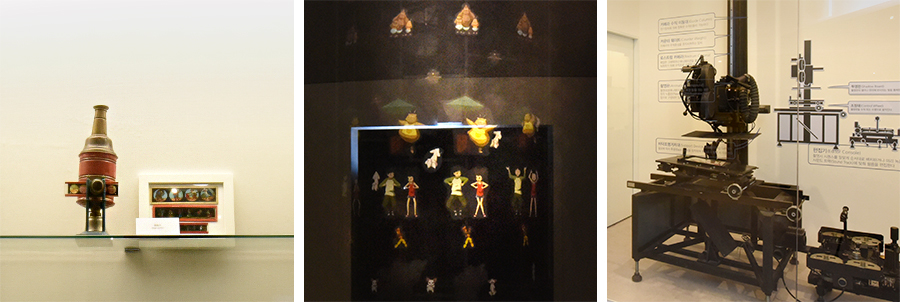
Here we can examine the principle of animation as visual playing equipment and analogue animation production
facilities, and an animation stand, etc. are exhibited. In particular, the phases of animation from planning to screening
can be examined through the production process of the animation Green Days.
Section 14
Film Professionals
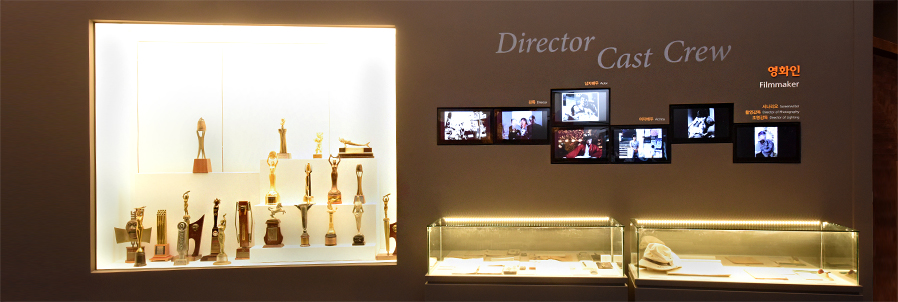
This is a section that pays tribute to the film professionals who participated in one hundred Korean films as actors/
actresses, directors or staff or who received awards in domestic and overseas film festivals. You can see major
filmographies, director’s notes, collections and trophies from various film festivals.